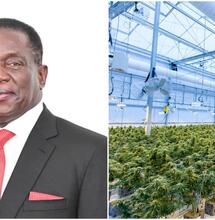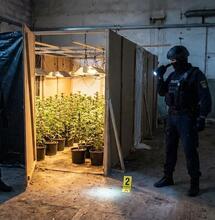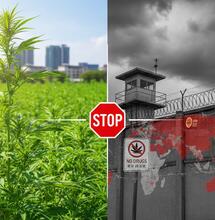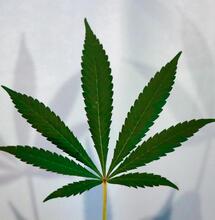A Fast-growing Multi-billion Dollar Industry on the African Continent: Cannabis.
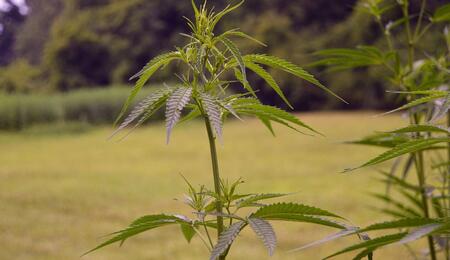
In Africa, marijuana has largely been cultivated illegally. The prospect of legalizing the plant has been unthinkable a decade ago. But now, more and more African countries open up to the idea of introducing a framework with an emphasis on medical use.
Official government rhetoric in most African countries has traditionally been unfriendly when it came to the acceptance of cannabis. But as countries begin to perceive the plant as "green gold," reforms are taking place one step at a time.
According to Prohibition Partners, a research and consulting firm specializing in the legal cannabis industry, Africa's legal cannabis industry could be worth as much as $7.1 billion by 2023.
As governments all across the continent change their stance on marijuana, multi-million dollar deals are getting signed left, right and center. In June this year, South Africa's pioneer commercial cannabis brand Goodleaf, merged with Highlight Investments from neighboring Lesotho. The merge is valued at about $45.2 million.
Before that, in April, Lesotho-based MG Health, a licensed operator of medical cannabis products, wrote history as the first African-based cannabis firm to earn much-coveted EU Good Manufacturing Practices (GMP) certification, which opened the company's pathway to strike deals in the highly lucrative EU market.
In 2017, Lesotho became the first African country to legalize marijuana, followed last month by Morocco. South Africa, Zimbabwe, Nigeria, Malawi, Ghana, Eswatini, and Zambia are also in the pool of countries with some form of a legal framework for cannabis produce or are discussing introducing one. Some of these countries see cannabis as a substitute commodity that could replace dwindling tobacco production. As canna-business promises unprecedented economic opportunities, many other African countries are planning to jump on the bandwagon as well.
Morocco managed to export an estimated $13 billion worth of cannabis to Europe each year before even the kingdom's lawmakers moved to authorize the "medical, cosmetic, and industrial" use of cannabis and, with that, provide a regulatory framework. The budding sector in this country employs 1 million people.
The kingdom's move to legalize cannabis is likely to trigger a domino effect where other countries such as Ethiopia, Nigeria, and the Democratic Republic of the Congo will seek to settle a framework and benefit a chunk from the global cannabis market that's projected to reach $90 billion in worth by 2026.
As a commodity, cannabis would bring a much-needed new revenue stream for Africa, particularly when a swirling pandemic has blasted economics glocally.
Legalizing cannabis in Africa, however, breaches morality principles. From Kenya to Uganda, public figures are vocal against the use of cannabis. Uganda's first lady, Janet Museveni, and a section of former and current cabinet ministers in the country have for example opposed attempts at legalizing pot, calling it "satanic" and ruinous to the "future of our children," although a report from the UK analytics firm New Frontier Data suggests the country has over 2.6 million users. Across Africa, this number officially reaches more than 83 million, with Nigeria leading the pack of most marijuana consumers with 20.8 million users.
As far as growing is concerned, a good majority of African farmers grow crops in secret. The fears are omnipresent that they would end up behind bars if authorities catch them. Even now that governments are opening up to the idea of endorsing cannabis, growing it won't get any easier for small farmers. There are only slight chances that legislation would encompass local consumption. Neither will small farmers be able to benefit from reform quickly.
In South Africa, the country with one of the most advanced legal statuses of cannabis and which has also authorized medical research for cannabis against Covid-19 last year, licenses for growing medicinal cannabis are anything but cheap. Obtaining a permit follows a rigid list of demands farmers should fulfill.
South Africa has a draft master plan for the industrialization and commercialization of cannabis, which has been billed as an instrument to fuel the country's economy and reduce poverty while creating new jobs. While the plan considers both hemp and dagga, it all seems set to benefit the big players rather than small farmers.
The Black Farmers Association of South Africa has gone out on a protest, alleging that black farmers are stripped of the opportunity to monetize from the budding sector. Their only hope is that the rules are relaxed so that they too can benefit from the broader domestic authorization of cannabis for medicinal purposes.
South Africa remains a rare example where efforts are set in place to serve a domestic market along with international trade. In most other African countries, the focus is on doing international business only, principally exporting overseas to growing Western markets. Although there's a capacity for much more.
The African continent, especially those countries that line the equator, has a huge opportunity to contribute to cannabis innovations in medicine and other sectors such as paper production and eco-bricks. While cannabis could help fix some of the continent's economic struggles, governments still need to tackle stigma and negative propaganda and allow equal opportunities for everyone.




